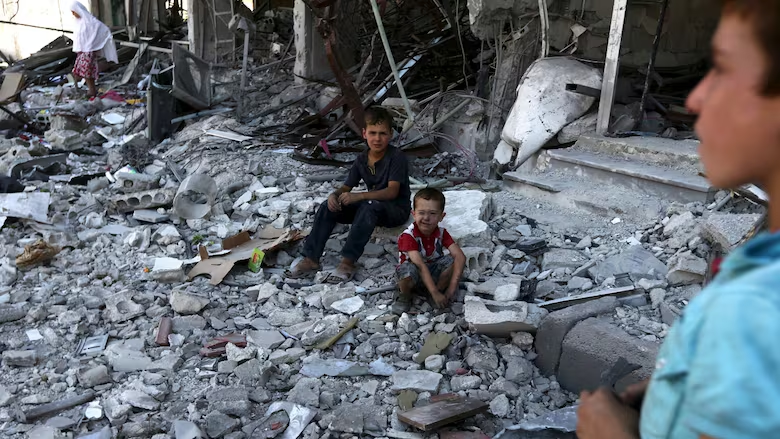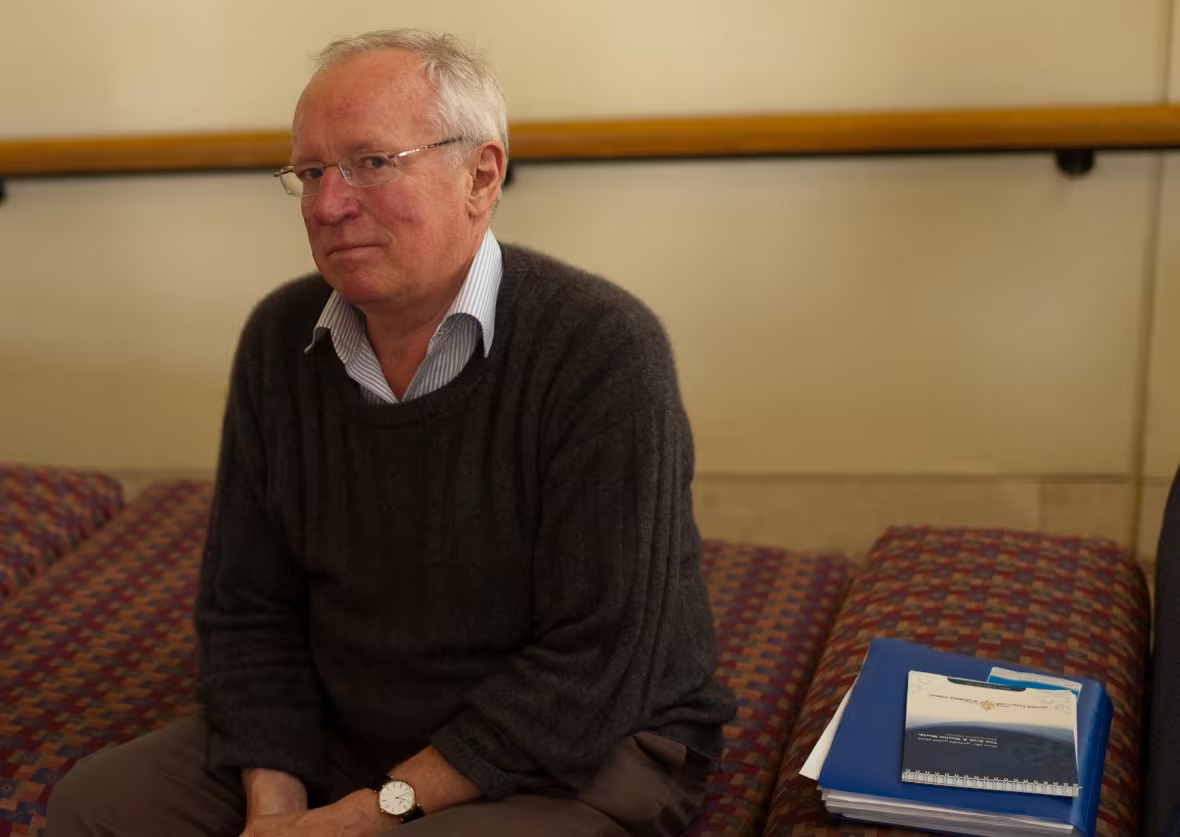Robert Fisk on Syrian crisis: 5 things you need to know
Veteran journalist says the situation in Syria is the most devastating thing he has ever witnessed

Robert Fisk has been covering the conflict in the Middle East for over 30 years, but he says he's never seen anything as devastating as the situation in Syria today.
"100 per cent, 101 per cent, no, I haven't," he said. "In fact the figures are so daunting that when you're there it's difficult to grasp them. More difficult than it probably is if you live in Canada," he told The Early Edition host Rick Cluff.
Fisk is a veteran Middle East correspondent for the British paper The Independent. He is in Vancouver today to share his insight into the Syrian Civil War and the rise of ISIS, as part of his seven-city lecture tour, "Goodbye, Mr. Sykes! Adieu, Monsieur Picot!" with Canadians for Justice and Peace in the Middle East.
Western colonial powers have left a legacy that has lead to the instability and continued violence in the Middle East, he said.
- Russia-U.S. talks on Syria do little to stem flow of refugees
- Conservative government aims to resettle 10,000 Syrian refugees by September 2016
- Al-Qaeda kills at least 45 Syrian army prisoners, activists say

5 things to know
Here are five things Fisk wants every Canadian to know about the Syrian crisis:
- The conflict has its roots in the Sykes-Picot Agreement: This treaty between France and the U.K. divided the Ottoman Empire into spheres of influence after World War I. This led to borders that made no sense, and countries that are basically creations of France and the U.K., Fisk says.
- ISIS is the result of Sykes-Picot: When The U.K. and France set up these countries, they set them up for their own benefit, Fisk says, not for the benefit of the people living there. They became unstable dictatorships where education was hard to come by, and Fisk says this laid the groundwork for ISIS and al-Qaeda.
- It's worse than it seems: Approximately 200,000 Syrians have been killed, and 11 million are displaced. Fisk believes those numbers are low estimates. "The government army alone, whose casualties are not officially revealed, they told me they've lost 56,000 soldiers dead fighting the rebels. I suspect the figure of overall dead, obviously most of them civilians, is somewhere nearer to 300,000," Fisk said.
- Refugees are being abused, and probably won't return: Fisk says he's personally observed the fate of many children who've escaped to Lebanon: instead of going to school to learn how to rebuild Syria and Iraq, many of them toil in fields as slave labourers, he says. Beyond those kids, Fisk doesn't think many other refugees will ever go back: "These countries no longer exists to them. It is no longer their country."
- Military intervention by Canada is not the solution: Instead, Fisk said, world powers need to collaborate with the Arab peoples to find long-term solutions to the damage done by Sykes-Picot and build countries that serve the people who live in them. "Canada should be there as it used to be: as a peacekeeping force to bring help and protection to those who suffer," he said.
To hear the full interview listen to the audio labelled Robert Fisk on the Syrian civil war and the rise of ISIS with the CBC's Rick Cluff on The Early Edition.